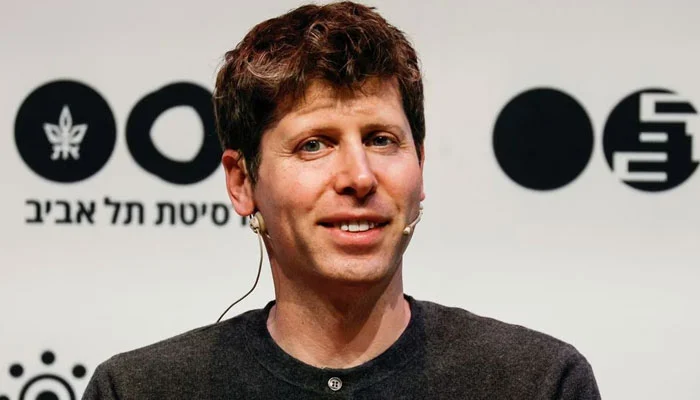In the ever-evolving landscape of technology, founders of artificial intelligence (AI) companies have ascended to the status of modern-day titans. Their innovations, ranging from AI chatbots to the cutting-edge chips powering them, are not only setting new records in terms of user numbers but also attracting the interest of nations looking to stockpile these technological marvels. Simultaneously, these pioneering inventors are amassing unimaginable wealth.
The consensus among governments and experts is that AI is on the brink of ushering in profound changes across various industries, including agriculture, healthcare, and defense. However, the conundrum lies in the uncertainty surrounding whether this technological revolution will yield predominantly positive or negative consequences.
With AI generating an unprecedented level of enthusiasm, it is no surprise that the individuals spearheading this tech revolution are enjoying a VIP treatment of their own. Recently, Indonesia made headlines by awarding its exclusive golden visa to Sam Altman, the co-founder of OpenAI. Altman’s meteoric rise to tech stardom came on the heels of the viral release of OpenAI’s AI chatbot, ChatGPT, in December. The golden visa not only grants Altman the privilege of staying in Indonesia for up to a decade but also bestows upon him perks such as expedited airport screening and service lanes, hassle-free travel, and exemption from cumbersome paperwork like limited stay permits.
Indonesia joins a select group of countries, including the United States, Ireland, and Spain, in offering a golden visa to high-net-worth individuals deemed to contribute significantly to the nation’s economy. Indonesia, with its population reaching a staggering 275 million last year, boasts the world’s 16th-largest economy.
Indonesia’s Golden Visa: Rolling Out the Red Carpet for Tech Titans
Indonesia’s golden visa, conferred upon Sam Altman, is exclusively reserved for “figures who have an international reputation” and must be proposed by a central government agency, according to Silmy Karim, Indonesia’s director general of immigration. The country is, in Karim’s words, rolling out the “red carpet” to entice AI investment.
Typically, a five-year golden visa necessitates individual investors to establish a company with a minimum value of $2.5 million, while a $5 million investment secures the coveted 10-year visa. Altman’s recent global tour to discuss AI regulation showcased his popularity among tech enthusiasts and policymakers. It also underscored the challenges associated with AI, particularly in terms of misinformation and falsehoods generated by chatbots like ChatGPT.
During his visit to India, Altman had the opportunity to meet with Prime Minister Narendra Modi and assume the role of the guest of honor at a talk attended by prominent figures in the country’s technology and business sectors. Additionally, he may soon find himself on the guest list for Rishi Sunak’s AI safety summit at Bletchley Park, the historic site of the Second World War Enigma code breakers.
Indonesia’s Potential and the Golden Visa Program
Indonesia possesses a multitude of strengths that make it an attractive destination for investment. With a population of approximately 275 million people, it ranks as the world’s fourth most populous nation. Moreover, it is the largest Muslim-majority country globally, providing significant soft power connectivity to a global Muslim population exceeding 1.8 billion individuals, with substantial representation in Africa, the Middle East, and South Asia.
The country also boasts a burgeoning middle-class consumer base, offering substantial potential to solidify its position as a non-aligned superpower with significant economic influence. Currently, Indonesia stands as the world’s seventh-largest economy by GDP (PPP) and is on a trajectory to enter the top five in the coming century. Its economy demonstrates remarkable resilience, frequently surpassing 5% YoY GDP growth and weathering shocks like those caused by COVID-19 and the 2022 geopolitical conflicts.
Reforms in Indonesia have been moving in the right direction, particularly in the property market, which recently opened up to foreign buyers on a larger scale. This reform allows non-resident foreigners to own property with relatively manageable minimum investment thresholds, a departure from previous restrictions on foreign property ownership.
The country’s tourism sector has also experienced robust growth, with a recent target of welcoming 7 million international visitors. Notable destinations like Bali, Yogyakarta, and various other locales across Indonesia’s 6,000+ inhabited islands continue to attract tourists, making tourism a significant economic driver.
Indonesia’s Golden Visa Program Unveiled
The recent announcement of Indonesia’s Golden Visa program has stirred interest across Asia. The program offers two investment options:
- For a five-year visa, a minimum investment of USD $350,000 in shares of public companies, savings or deposit accounts, or government bonds is required.
- To secure a ten-year visa, a larger investment of USD $700,000 is necessary.
However, it’s crucial to clarify that this program does not grant citizenship or permanent residency. Indonesia has strict citizenship laws, and the issuance of citizenship to non-Indonesians is exceedingly rare and typically limited to cases of marriage or extraordinary integration into Indonesian society. Instead, the Golden Visa program offers a form of residency.
Moreover, this residency is not permanent; it is a five- or ten-year investor visa that could potentially be subject to changes or expiration. For the amount of investment required, individuals can explore alternative options in various European countries such as Latvia, Greece, or Portugal, as well as neighboring countries like the Philippines or South Korea, both of which offer underrated residency programs. Alternatively, high-growth markets in the Americas, such as Mexico, Colombia, or Brazil, also provide attractive investment opportunities.
There has also been ongoing speculation about the introduction of a true digital nomad visa, catering to the Bali-adjacent crowd. However, in practice, many visa facilitators across Indonesia have been able to secure endlessly renewable “social visit” or “business research” visas for individuals seeking a physical presence in the country.
Read More:











